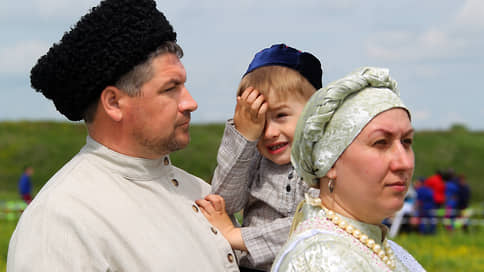Russian families are less likely to punish children with a belt and more often deprive gadgets

Russian parents use physical punishments less and less as an educational measure – these are the results of a fresh survey of the All -Russian Center for the Study of Public Opinion. Most families try to discuss their behavior with children, and as a punishment they often use deprivation of gadgets. At the same time, the current parents themselves often “received a belt” in childhood. Psychologists surveyed “Kommersant” note a change in public opinion in which physical violence against children has become unacceptable.
All -Russian Center for the Study of Public Opinion (VTsIOM) introduced The results of a survey of Russians about the methods of raising children. 1.6 thousand adult citizens answered questions.
First of all, sociologists asked participants in the study what methods of education were used in childhood. The most popular option is « Mentoring and moralizing » – 57% of men and 62% of women chose. The second common answer is « Supporting as a punishment ». Interestingly, men have encountered such actions of adults almost twice as often than women (40% and 25%, respectively). In third place – « Punishment with a belt ». It turned out that 34% of men and 19% of women have the experience of physical violence in childhood. For the rest of the answers, see the table on the same page.
The gender differences in the education of sons and daughters reinforce the traditional model of society, in which the boy is “not supposed to” be vulnerable, and the girl, on the contrary, should be “socially adaptive and sensitive”, the sociologists of VTIMA believe. They note that in the long run, this leads to the reproduction and rooting of role -playing gender models – « male emotional closure and female moral load. »
The respondents were also asked what kind of education measures they themselves use.
Judging by the answers, modern parents began to more often discuss their behavior with children: “mentoring and moralizing” as a method of education are used by 74% of fathers and 77% of mothers.
The answer “setting in a corner as a punishment” moved to the third line, and the second most popular educational measure was “restriction of viewing TV, gadgets, walks” (for more details see table). Physical punishments are less common today, and we are talking more often about slaps and subtitlers, and not about the belt, the authors of the study emphasize. The study also showed that every ninth parent from the “reform generation” (1968–1981) beat children with a belt and every seventh applied other bodily punishments. And among the parents-milenials (1982–2000), every fourth or fifth puts children in a corner.
The clinical psychologist of the Doctor Near Olesya Tolstukhina says that the culture of the “humanistic, conscious education of children” began to spread rapidly in the 1990s-including thanks to the stream of foreign family films. At the same time, psychology began to actively develop in Russia, many translated books about child psychology and education appeared. “Then the second wave has already connected – public opinion changed, physical punishment began to look unacceptable. The system of protecting the rights of children began to build, the stories of the seizure of children from families, where they were brutally treated. And today, conscious parenthood is the mainstream, ”Ms. Tolstukhina points out.
Member of the Scientific Council of the Academy of Social Technologies, candidate of psychological sciences Igor Nesov suggests that the results of the survey record a change in the structure of the family values: the balance of education and support is shifted towards support.
The head of the working group on the psychological well -being of the population under the Duma Committee for the Protection of the Family, Alexei Bogachev, notes that « humanity as a whole is inclined to move towards humanism » and that Russia has « passed the way for the limits of attitude to a person as a screw. » Hence, according to him, the tendency of parents to understand the child and convey their position through communication. However, Mr. Bogachev believes that not all physical impact does harm: “For the child, it is most traumatic when he is not treated as an independent person. In this sense, the insult is a psychological trauma, and a slap with love, with understanding – when, for example, a four -year -old baby cannot control himself, is sometimes a natural step for the child. ”








